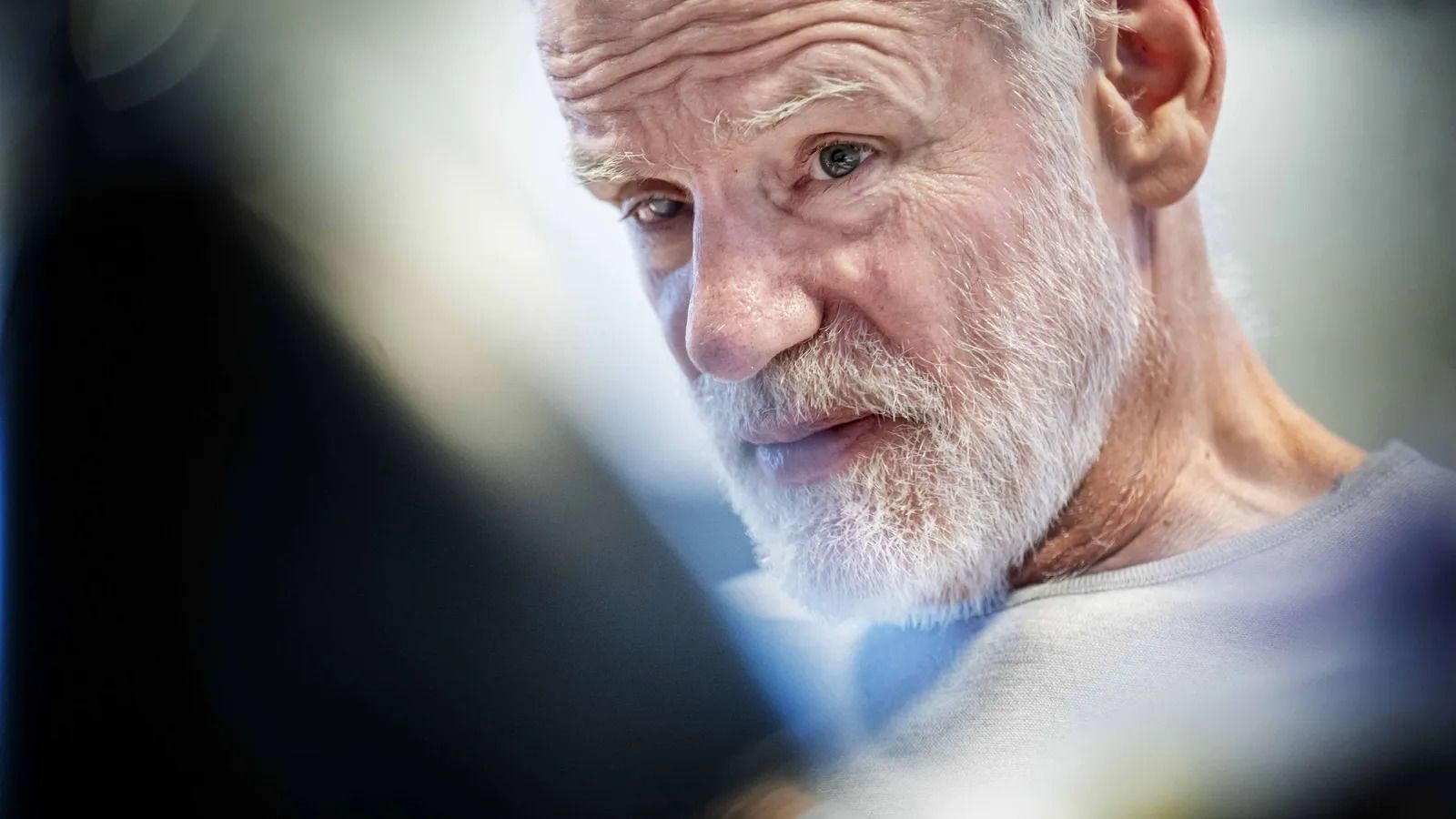
How genetics determine our life choices
In the subterranean depths of a granite building on the outskirts of Iceland's capital, Reykjavík, a robot is slowly and methodically shuffling the chilled blood of tens of thousands of people from all over the world.
Down in this concrete chamber, a well-honed process is taking place. DNA is extracted from the samples and then fed into sequencing machines which slowly piece together the unique lines of chemical bases which form the basis of each individual's identity. Later on, artificial intelligence algorithms will connect this genetic code or genome with detailed information held in biobanks about their life – their diet, personality, relationship choices, hobbies, the diseases to which they ultimately succumbed - and search for links which scientists might deem statistically significant.
This particular concrete chamber is owned by an Icelandic company called deCODE genetics, which has sequenced more whole genomes – over 400,000 and counting – than any other institution in the world. Through this process it has made major contributions to understanding our inherited risk of Alzheimer's, schizophrenia, coronary artery disease, various forms of cancer, and many other chronic illnesses.
But it has also inspired others to use the same process to delve deep into the human psyche, and find connections between the genome and our personalities, food preferences, and even ability to maintain relationships.
These kinds of studies are starting to touch on something more intimate than simply the search for new medicines, instead revealing new connections between our genetic code and our life choices. For many scientists it has begun to raise the question, to what extent is our behaviour the product of our own volition, and how much is simply pre-determined by our underlying biology?
"When you look at us as a species, we have come into existence on the basis of information that lives in our genome, and then the interaction of that with the environment," says Kári Stefánsson, an Icelandic scientist who founded deCODE genetics in 1996, with the initial aim of using Iceland's unique genetic landscape to understand more about common diseases. The country has a small population that has been relatively isolated over the centuries, meaning that there is much less genetic variation than in other nations. This in turn means that there is less background noise to complicate matters, making it easier for scientists to identify meaningful gene variants.
Part neurologist, part philosopher, the 73-year-old Stefánsson has become ever more convinced that the complex cocktail of DNA we inherit from our parents, along with around 70 spontaneous genetic mutations which we acquire by chance, subconsciously dictates our behaviour to a far greater extent than we are aware.
We may not realise it, but it appears that many routine aspects of our daily lives might be partially driven by our genome. Subtle genetic tweaks in your taste receptors help to determine whether you prefer drinking coffee or tea. It turns out that coffee lovers are less sensitive to the bitterness of caffeine, while tea aficionados do not perceive other types of bitter chemicals quite so potently.
Genetics also play a role when it comes to our inclinations or aversions for all sorts of different activities. At a simplistic level, it governs both how much you enjoy exercising, and whether you prefer more solitary forms of physical activity such as running, or competing with others as part of team sports. But our DNA can also point us towards more specific leisure-time pursuits.
Fifteen years ago, a survey of 2,000 British adults first suggested that there might be such a thing as a hobby gene. Simply looking at a person's family tree and the favoured pastimes of their ancestors suggested a strong inclination towards certain types of activities. Participants in the survey were often surprised to discover that they actually came from a long line of amateur gardeners, stamp collectors, or cake makers.
In the following decade, many people around the world have referred to the study after finding that a parent or grandparent's favoured pastime suddenly held an inexplicable appeal in adulthood. In a Medium blog, Michael Woronko, an insurance worker from Ottawa, Canada wrote, "I had never shown an interest for gardening, even when my mom had dragged me along to her community garden as a child. I couldn't care less about hybrid tomatoes, about germinating peppers, and so forth, but when the opportunity presented itself (as an adult), something deep down inside of me sprang forward and I ran with it".
Large genomic sequencing studies are now starting to explain why. Stefánsson describes how deCODE's scientists have even found one particular gene variant which determines whether crossword puzzles will appeal to you. "We know that if you have it, you will like to solve crossword puzzles, but it has no impact on whether you're good at them or not," he laughs.
This also holds true when it comes to the complex matter of how our genes dictate the life paths that we follow.
From Boston to Shenzhen, various tech start-ups have spent years searching for so-called talent genes, genetic variants which might confer an innate natural strength or unique language abilities, enabling a person to be directed towards the areas where they have the most to offer.
But doing so is not quite as simple as it might seem. Geneticists at the Max Planck Institute in Leipzig, Germany, have recently tried to draw connections between a gene called ROBO1 which controls grey matter development in a part of the brain involved in number representation, and a child's mathematical abilities. But so far it seems that with all talents, whether that is number crunching, musical ability, or athletic prowess, genetics is just a relatively small part of the equation.
Instead, as Stefánsson found with crosswords, it seems our genes influence our natural inclinations towards doing certain activities. What truly dictates whether we have any aptitude for them are factors such as whether we receive tutoring and other opportunities at an early age, and our own willingness to practice, improve and persist.
The latter points to where genetics might wield its weightiest influence over our life paths - our personality traits. According to Danielle Dick, a psychiatry professor at Rutgers University in New Jersey and author of the book The Child Code, most dimensions of personality such as how extroverted or introverted, conscientious, agreeable, impulsive, and perhaps even how creative we are, have some kind of genetic component.
"This reflects the fact that our genes influence the ways our brains form, which impacts how we think and interact with the world," says Dick. "Some people have brains that are more inclined to seek out exciting or novel experiences, more likely to take risks, or drawn to more immediate rewards."
There can be advantages to all of these characteristics. Entrepreneurs, CEOs, fighter pilots, and athletes who compete in extreme sports, all tend to be natural risk-takers. But having this genetic background can also come with certain costs. Risk-takers are more likely to develop addictions, while Stefánsson's work has shown that a proportion of the people with the genetics that would otherwise encourage creative thinking actually go on to develop schizophrenia. Naturally impulsive people might be better decision-makers and willing to seize opportunities that would otherwise pass them by, but they can also be vulnerable to developing gambling problems, dropping out of school or getting fired from a job.
Our genes influence the ways our brains form, which impacts how we think and interact with the world – Danielle Dick
A recent study co-authored by Dick used data from around 1.5 million individuals to identify gene variants linked to impulsivity. She found that impulsive people tended to be more likely to develop attention deficit hyperactivity disorder (ADHD) as children, or participate in smoking and substance taking in adolescence and adulthood, before later developing associated conditions such as obesity and lung cancer.
"That said, it is equally clear that DNA is not destiny," says Dick. "Our genes influence our dispositions, which influence our natural tendencies, but it does not mean that people with them are always going to develop problems."
 Kári-Stefánsson, founder of deCODE genetics, believes the DNA we inherit
subconsciously dictates our behaviour much more than we realise
Kári-Stefánsson, founder of deCODE genetics, believes the DNA we inherit
subconsciously dictates our behaviour much more than we realise
The environment we find ourselves in plays a huge role in determining whether we act on our genetic inclinations or not. Stefánsson says that people who have genetic variants in their brain which make them struggle with inhibition are going to be more likely to overeat if they work next to fast food outlets, and struggle to quit if they begin smoking. But at the same time, there is evidence that having a stable family life, stable romantic relationships and friendships, or even exercising regularly can help them live a productive life.
"Individuals at the highest risk are also the ones who benefit most from a healthy environment," says Cecilia Flores, a psychiatry professor at McGill University in Canada. "A positive environment can buffer genetic susceptibility, and even reverse it."
But this does not only help to explain the connection between personality and patterns of addictive behaviour. Social scientists are now finding that studying these kinds of gene-environment interactions helps to explain why some people are more suited to maintaining long-term relationships than others.
The genetics of love
Four years ago, sociologists at the Yale School of Public Health embarked on a study of 178 married couples, ranging from 37 to 90-years-old. Each partner was asked to answer a series of questions relating to their happiness and sense of security in the relationship, and provide a saliva sample which would be used to analyse certain genes.
Scientists have long known that genetics plays some kind of a role in determining our choices of friends, and even romantic partners. In both cases we tend to form attachments with people who have certain physical similarities to ourselves. "We tend to form social relationships with individuals who are more genetically similar to us," says Andrew Dewan, a genetic epidemiologist at Yale. "We can think of the genes controlling these traits as having some influence on who we are choosing to form friendships with."
It turns out that genes also play a significant in our ability to keep a stable, happy relationship going over the course of years and decades. Previous research has shown that the children of divorced parents are more likely to themselves get divorced while the Yale study investigated the role of a hormone called oxytocin which drives bonding, and makes partners feel closer to each other. It found that when at least one partner in a marriage had a certain gene variant which increases the activity of oxytocin and makes the mind more receptive to its benefits, that partner was less likely to display psychological symptoms known as anxious attachment, and the couple were happier.
Anxious attachment is a particular style of relationship insecurity that develops from past experiences with close family members and previous partners. It results in diminished self-worth, high rejection sensitivity, and approval-seeking behaviour. "This shows that inherited genetic variants can contribute to our happiness in relationships," says Dewan. "Our genetics does not solely dictate our ability to form long-term relationships, but is one contributing factor that may nudge us in one direction or another, either towards or away from them."
 Our genetics govern both how much you enjoy exercising and whether you
prefer more solitary forms of physical activity such as running
Our genetics govern both how much you enjoy exercising and whether you
prefer more solitary forms of physical activity such as running
Across the spectrum of medicine and psychology, psychiatrists, child development specialists and obesity experts are now looking to use the growing amount of genetic information to shape public health policies, and provide people with practical advice.
Nicola Pirastu, a biostatistics expert at the Human Technopole research institute in Italy, has found that genetic variants in food preferences can shift our liking from fruit and vegetables to high calorie, fatty foods. Because so many of these variants are found in the brain, he thinks that obesity should increasingly be treated as a disease with medications rather than dietary interventions.
"Losing weight is super difficult," he says. "And it's not just about willpower. If you're always hungry, of course you want to eat. So drugs which act on this craving for food can certainly help people. Of course you can do it through diet as well, but maintaining a diet is kind of like a full-time job, and a lot of people are not able to do that."
With the cost of genetic sequencing continuing to fall, it is possible that this might be used in future to screen children or adolescents who are displaying signs of addictive behaviour. "My hope is that as there is greater public understanding that problems like addiction or child behaviour are often related to the luck of the draw when it comes to the genes one inherits, it will reduce stigma," says Dick. "By identifying individuals who are at risk earlier in development, we can put resources in place to help them reach their full potential."
Dick believes that if the individual and their family know that they are prone to addictive or risk-taking behaviour, it can help them avoid actively seeking out those environments. But she says that society has a role to play as well. "Many of us in the addiction field are particularly concerned about the new laws in the United States that are allowing easy access to cannabis and online gambling as we know that environments that promote increased availability and acceptance of these behaviours are associated with higher rates of problems," she says.
But we are still only at the beginning of understanding exactly how our genes dictate what we do, and the role they play in our choices. For the last two decades, Stefánsson and others have slowly unravelled many of these links, but there are still many basic questions which are yet to be answered.
"One of the big questions is, can you inherit a thought?" he says. "Is the way you think passed down from your mother and father? One of the problems with proving that is we don't have a good definition of a thought. Yet if you take our species, we could say that we are pretty much defined by our thoughts and emotions. But in 2023, we haven't even managed to define one of the attributes that define us."










